US envoy calls for united front against cross-border crime
Popp emphasised that addressing these challenges requires a united front, which involves the region’s governments, border authorities, and local communities.
L-R: Sanusi Tejan Savage, IOM Chief of Mission in Uganda, William W. Popp, the United States ambassador to Uganda, Minister of Internal Affairs Maj. Gen. (Rtd) Kahinda Otafiire, and Maj. Gen. Apollo Kasiita-Gowa, Director of Citizenship and Immigration Control during the hand over on Thursday, September 4, 2025, at ministry of internal affairs headquarters. (File/New Vision/Mpalanyi Ssentongo)
___________
William W. Popp, the United States ambassador to Uganda, has called for stronger regional cooperation to combat transnational organised crime, human trafficking, and illegal cross-border activity in the Lake Victoria region, warning that these threats require a coordinated and sustained response from all affected nations.
Popp emphasised that addressing these challenges requires a united front, which involves the region’s governments, border authorities, and local communities.
“Criminals exploit vulnerabilities wherever they exist,” Ambassador Popp said. “That is why the United States remains steadfast in its commitment to combating cross-border criminal activity and illegal immigration—not just in Uganda, but globally.”
He added that threats such as smuggling and human trafficking are not unique to Uganda and can only be countered through enhanced cross-border collaboration.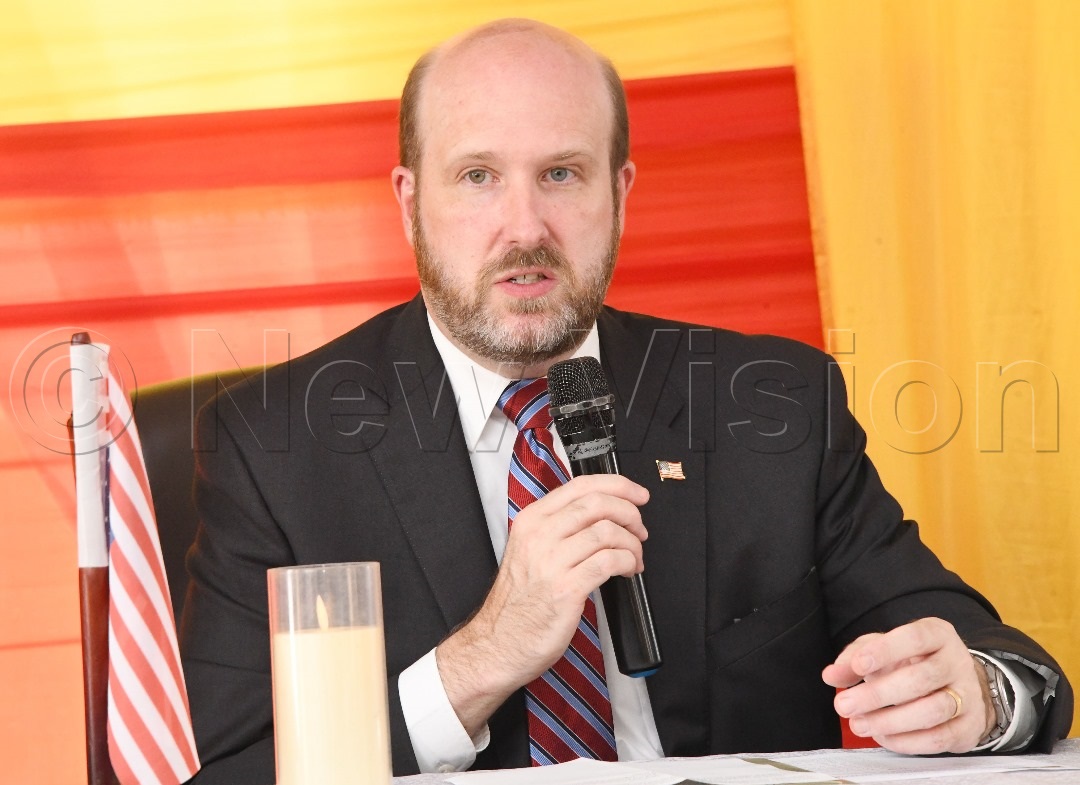
Ambassador Popp.
He was speaking during the official handover of US-donated border security equipment to the Directorate of Citizenship and Immigration Control (DCIC) on Thursday, September 4, 2025, The handover ceremony, held at the Ministry of Internal Affairs headquarters in Kampala, marked the delivery of essential border security tools funded by the US Bureau of International Narcotics and Law Enforcement Affairs (INL) and implemented by the International Organization for Migration (IOM).
The package includes three Toyota Hilux patrol vehicles, containerised office units for border posts and five mobile Migration Information and Data Analysis System (MIDAS) kits, which provide biometric data capture and real-time border surveillance capabilities.
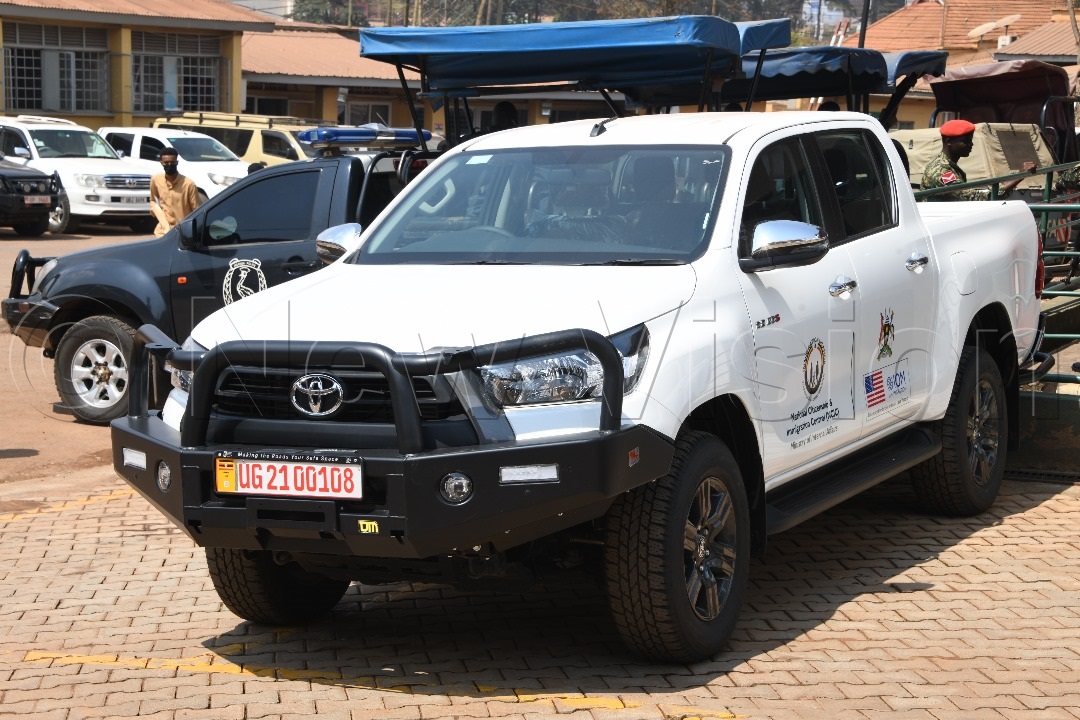
One of the Toyota Hilux patrol vehicles. (File/Mpalanyi Ssentongo)
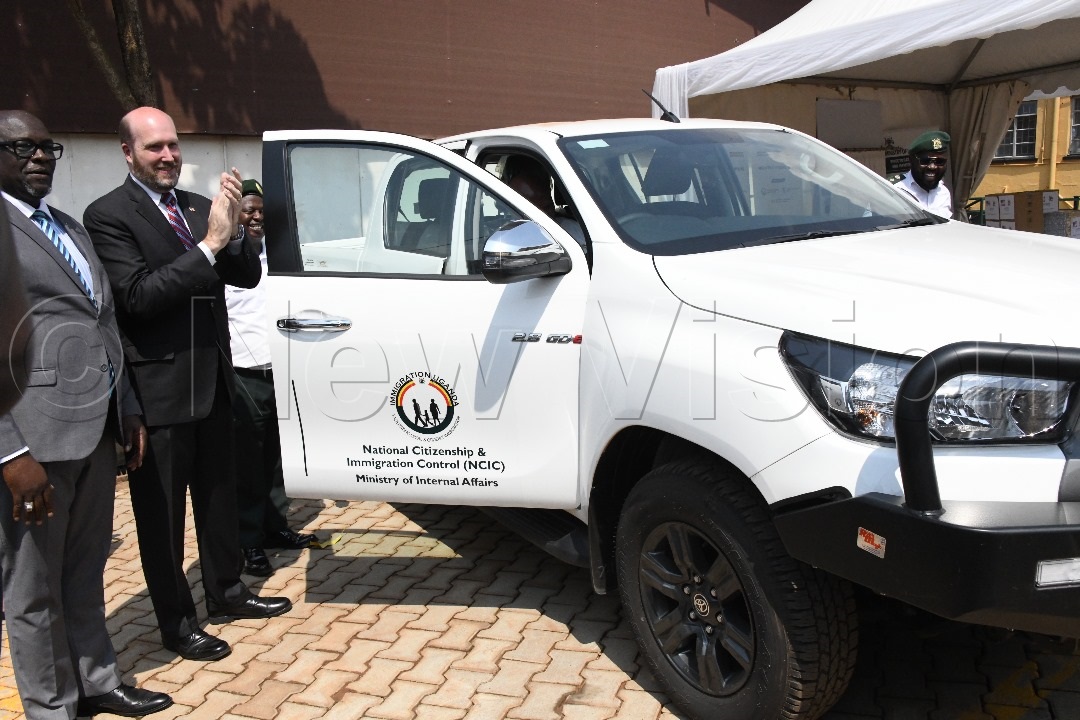
William W. Popp, the United States ambassador to Uganda handing over the Toyota Hilux patrol vehicle. (File/Mpalanyi Ssentongo)
He described Lake Victoria as both an economic lifeline and a point of vulnerability, serving over 40 million people through trade, transport, and tourism, noting that the lake is being exploited by criminal networks.
“We must act decisively to protect the communities that depend on it,” he said, praising the Uganda government, especially the Ministry of Internal Affairs and DCIC, for their leadership and commitment to tackling organised crime and promoting safe and orderly migration.
“We are confident that these resources will be put to effective use and help lay the foundation for a more secure and prosperous region.”
He added that through the donation, “US are not delivering vehicles and technology, but building lasting cooperation between border agencies, fostering community engagement and helping government work together to close the gaps that criminals exploit”.
“We are proud to be working alongside Uganda and our partners in the region,” Ambassador Popp said. “Together, we are building a more secure and prosperous future.”
Orderly and Humane Migration
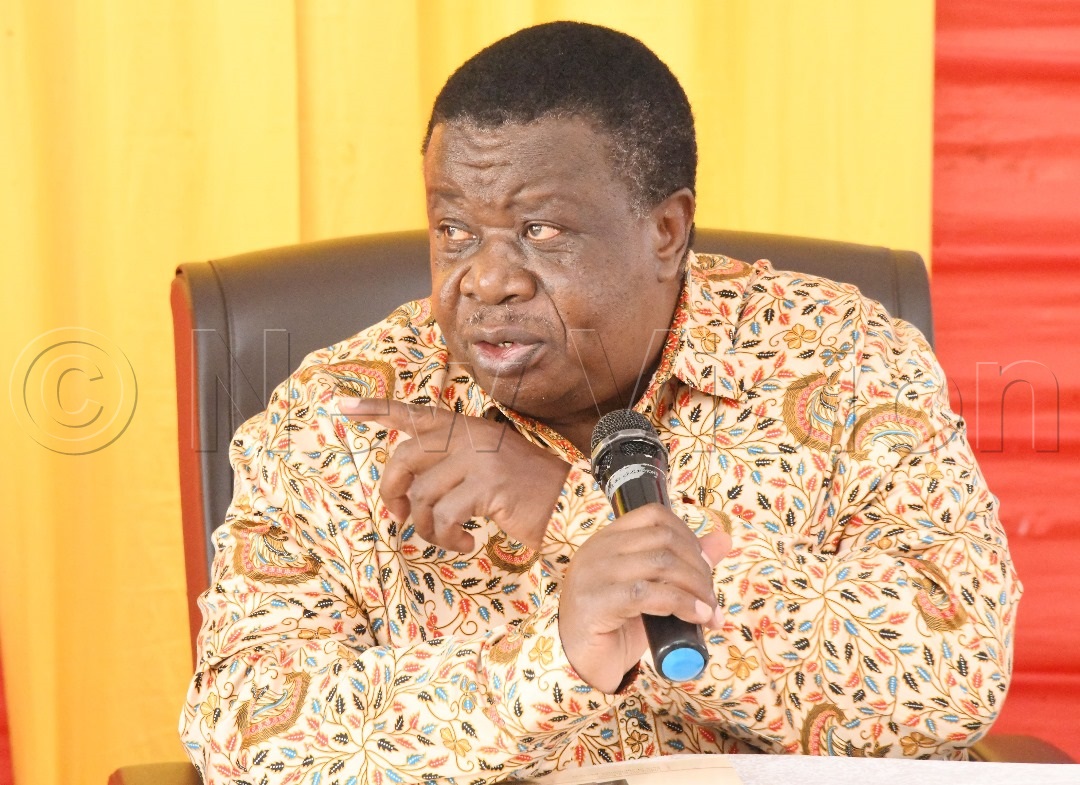
Minister of Internal Affairs Maj. Gen. (Rtd) Kahinda Otafiire.
Minister of Internal Affairs Maj. Gen. (Rtd) Kahinda Otafiire welcomed the US support and used the occasion to underscore the need for increased investment in border infrastructure. He noted that border control manned by immigration officers is Uganda’s first line of defence in terms of national security.
Unfortunately, he said the ministry has continued to struggle with a restricted budget because “those who allocate resources don’t always recognise how critical border security is.”
He emphasised that immigration control goes beyond regulating movement and is part of Uganda’s national security architecture.
“You may have a strong air force and artillery, but without boots on the ground, you don’t capture territory,” he said. “In our case, those boots are our immigration officers at the borders.”
The minister urged the budget allocation arm of the government to prioritise funding for border operations, especially to cover porous and unofficial crossings.
“Instead of complaining about porous borders, we should think about buying more of these containerised offices to plug the gaps,” he said.
He also made a pointed call for national self-reliance, adding that the country cannot wait on donors to fund items that touch its critical sectors, including security.
“The United States can afford to help, but they’re under no obligation to feed us. Nobody owes us a living. The success of our programs depends on our internal dynamism, and our partners can only complement that,” he said.
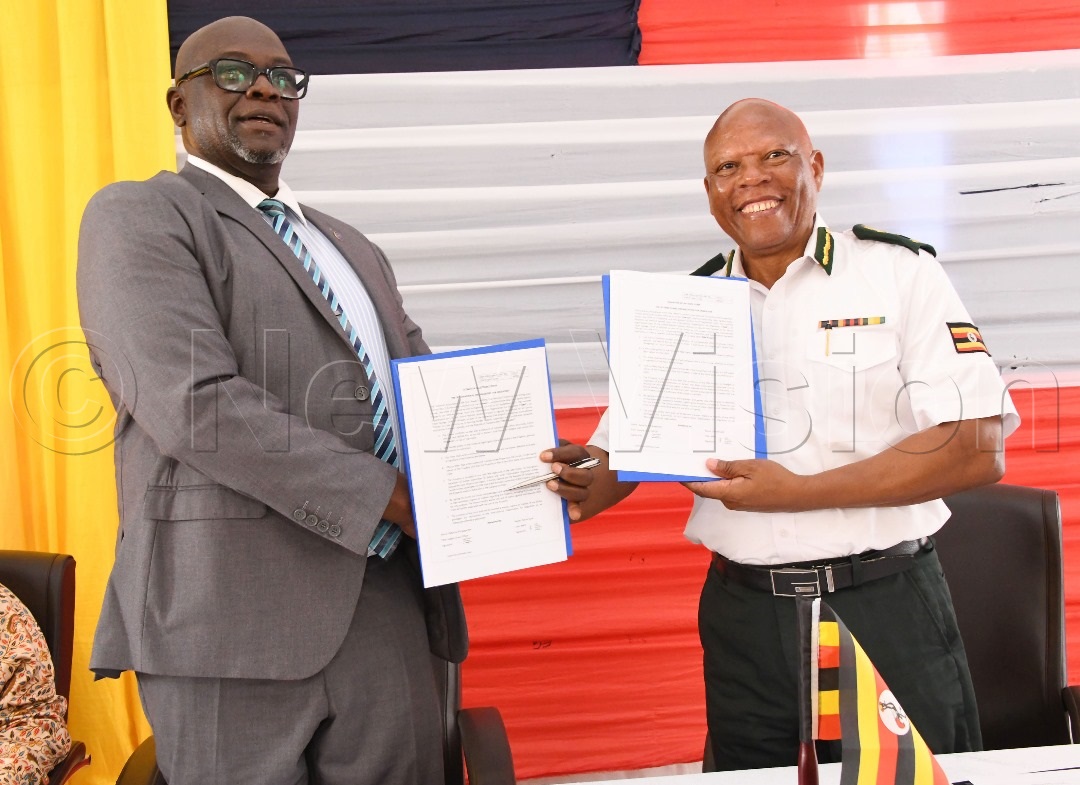
Sanusi Tejan Savage, IOM Chief of Mission in Uganda with Maj. Gen. Apollo Kasiita-Gowa, Director of Citizenship and Immigration Control. (File/New Vision/Mpalanyi Ssentongo)
Sanusi Tejan Savage, IOM Chief of Mission in Uganda, praised the partnership and underscored the significance of empowering frontline officers and strengthening the capacity of the country’s border officials. He noted that this reflects the shared commitment between the United States, IOM, and the Government of Uganda to promote safe, orderly, and humane migration.
He noted that some MIDAS have already been installed at eight Ugandan border posts and continue to play a key role in capturing biometric data and tracking movements.
“These kits are revolutionising how data is captured and processed,” Savage said. “They improve operational efficiency and help safeguard borders against organised crime.”
Maj. Gen. Apollo Kasiita-Gowa, Director of Citizenship and Immigration Control, echoed the need for deeper international partnerships and noted that the assistance will help us continue monitoring not only on the lakes but also on the roads.
He described manning Uganda’s borders as a “huge task,” adding that the US border security system—with its advanced surveillance tools—serves as an ideal benchmark.
“We appreciate this support, and we hope it opens the door for more training and joint capacity building,” he said. “This is a global issue, and not unique to Uganda.”